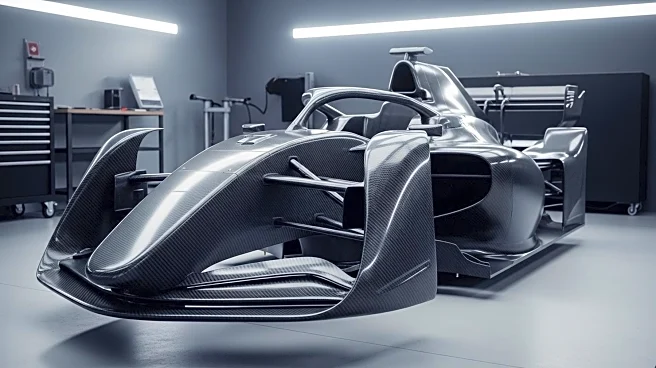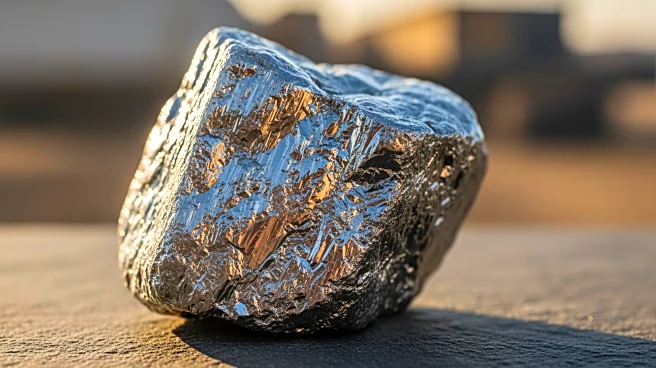What is the story about?
What's Happening?
The Mercedes-AMG PETRONAS F1 Team debuted a bio-based carbon fibre composite at the Azerbaijan Grand Prix. This innovative material was used on the rear brake duct wheel shields of the #63 W16 car, which finished second in the race. The composite replaces 30% of traditional resin with renewable sources, marking a significant step towards sustainability in Formula 1. The development was achieved through collaboration with Syensqo, showcasing the potential for widespread adoption of sustainable materials in high-performance environments.
Why It's Important?
This development represents a major advancement in sustainable technology within Formula 1, a sport known for its high-performance demands. By integrating bio-based materials, Mercedes-AMG PETRONAS is setting a precedent for environmental responsibility in motorsport. This innovation could lead to broader applications across industries, promoting sustainability while maintaining performance standards. The team's commitment to achieving Net Zero by 2040 highlights the growing importance of environmental considerations in competitive sports.
Beyond the Headlines
The use of bio-based composites in Formula 1 could influence other sectors, encouraging the adoption of sustainable materials in automotive and aerospace industries. This shift towards sustainability reflects a broader trend in sports and business, where environmental impact is increasingly prioritized. The collaboration with Syensqo underscores the role of partnerships in driving technological advancements and achieving sustainability goals.















